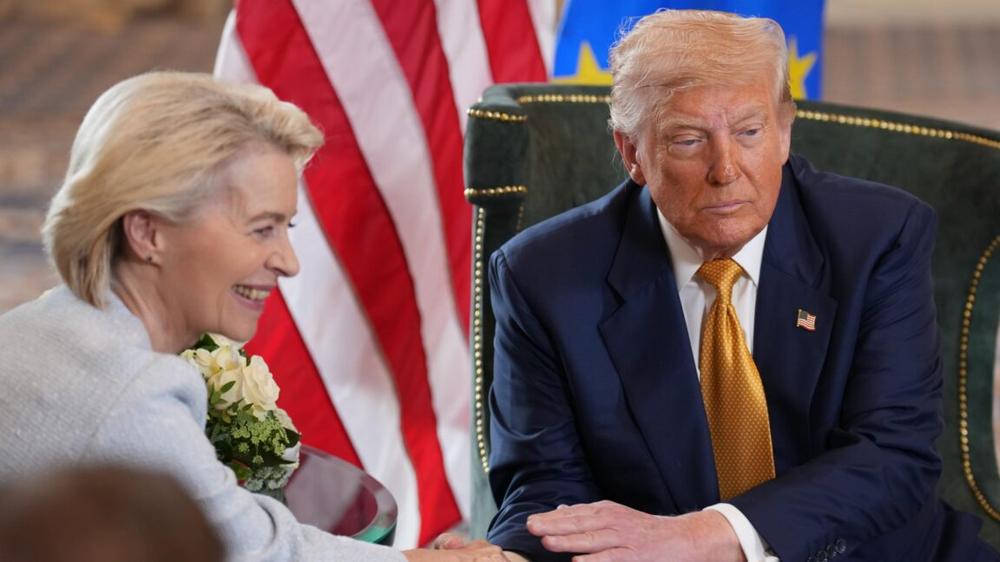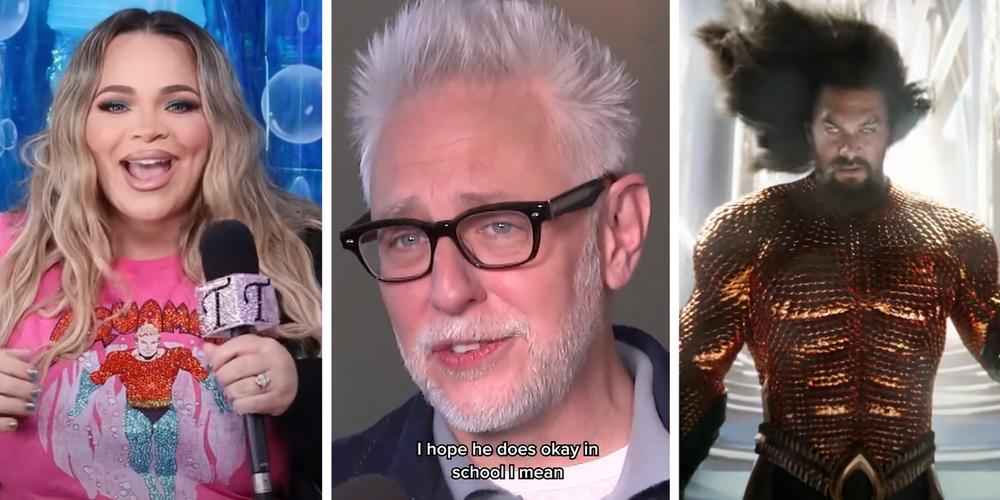The White House said yesterday that the European Union agreed to scrap a controversial proposal to make online platforms pay for telecom companies' broadband network upgrades and expansions. But European officials have not confirmed the White House claim, and a European Commission spokesperson said the issue must go through the legislative process.
A White House fact sheet on President Trump's trade deal with European Commission President Ursula von der Leyen contains a brief reference to Europe agreeing not to impose network usage fees.
"The United States and the European Union intend to address unjustified digital trade barriers," the White House said. "In that respect, the European Union confirms that it will not adopt or maintain network usage fees. Furthermore, the United States and the European Union will maintain zero customs duties on electronic transmissions."
Internet providers have been seeking payments from tech companies for many years. While tech companies pay for Internet access and sometimes build their own network infrastructure, telecoms claim that tech companies impose such a large burden on their networks that they should make additional payments to help pay for broadband construction. Telecoms call this a "fair share."
European officials are working on a Digital Networks Act that may or may not include a provision on network usage fees. A European Parliamentary Research Service briefing says the in-progress legislation could tackle "the network cost contribution debate," or "fair share."
“We have the sovereign right to legislate”
After yesterday's White House statement about Europe confirming that it won't adopt network usage fees, European Commission Spokesperson Thomas Regnier "denied that there has been any such confirmation," an MLex article said.
"What we're saying is that the Digital Networks Act would be a piece of legislation and that we have the sovereign right to legislate how we want to legislate," Regnier was quoted as saying. "There is a remaining issue, the fair share question. It doesn't date back to yesterday, and this will be addressed, but it has nothing to do particularly with the US. This has to be addressed in our upcoming legislation. This is precisely what we will be doing."
We asked the White House and European Commission for more details today and will update this article with any new information.
If the White House fact sheet's reference to network usage fees has at least some truth to it, it may refer only to a tentative agreement between Trump and von der Leyen. The overall trade deal, which includes a 15 percent cap on tariffs for most EU exports into the US, is not final, as the European Commission pointed out in its announcement.
"The political agreement of 27 July 2025 is not legally binding," a European Commission announcement said. "Beyond taking the immediate actions committed, the EU and the US will further negotiate, in line with their relevant internal procedures, to fully implement the political agreement."
Big Tech hopeful that usage fees are dead
The European Union government sought public input on network fees in 2023, drawing opposition from US tech companies and the Biden administration. While European ISPs pushed for new fees from online companies that accounted for over 5 percent of average peak traffic, the Biden administration said the plan "could reinforce the dominant market position of the largest operators... give operators a new bottleneck over customers, raise costs for end users," and undermine net neutrality.
As tech industry analyst Dean Bubley wrote today, the White House statement on network usage fees is vague, and "the devil is in the detail here." One thing to watch out for, he said, is whether Europe prohibits back-door methods of charging network usage fees, such as having the government regulate disputes over IP interconnection.
Bubley speculated that the EC might have "received a boatload of negative feedback" about network usage fees in a recent public consultation on the Digital Networks Act and that the trade deal provides "a nice, Trump-shaped excuse to boot out the whole idea, which in any case had huge internal flaws and contradictions—and specifically worked against the EU's own objectives in having a robust AI industry, which I'd wager is seen in Brussels as much more important."
The White House announcement was welcomed by the Computer & Communications Industry Association (CCIA), a lobby group for tech companies including Amazon, Apple, Cloudflare, eBay, Google, Intel, and Meta. "The agreement provides a process to remove unjustified barriers to digital trade—including foregoing proposed network usage fees requiring US tech companies to subsidize European telecommunications operators," the group said yesterday. Still, the CCIA acknowledged that "details remain scarce" on what's actually in the agreement.
In comments filed last year with the Office of the United States Trade Representative, the CCIA said that ISPs are seeking fees from tech companies "to facilitate the delivery of content demanded by the ISPs' customers... Network usage fees would likely be imposed predominantly on US online services suppliers that offer content and applications in Europe that have garnered significant consumer demand."
The telecom-industry argument that tech companies should pay a "fair share" toward network-building costs has been echoed numerous times by Federal Communications Commission Chairman Brendan Carr. Carr claimed in previous years that "Big Tech has been enjoying a free ride on our Internet infrastructure while skipping out on the billions of dollars in costs needed to maintain and build that network."
In the US, making tech companies pay for broadband network upgrades could involve requiring them to pay into the FCC's Universal Service Fund. But if the Trump White House objects to similar fees being charged in Europe, the Big Tech industry would have a stronger argument against new fees being introduced in the US.

 Ex-Rockstar dev warns GTA 6 could sacrifice smoother gameplay for enhanced graphics
Ex-Rockstar dev warns GTA 6 could sacrifice smoother gameplay for enhanced graphics